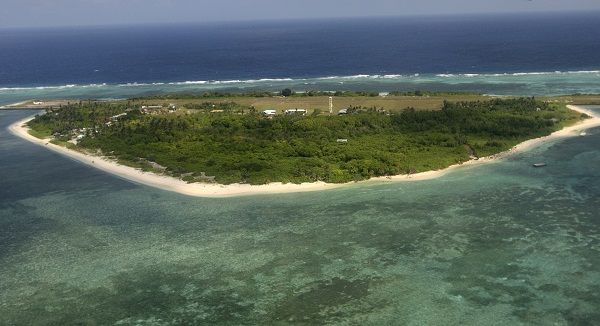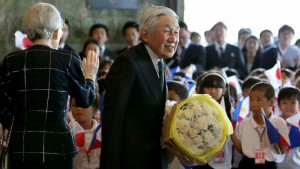
This July 20, 2011 file photo, captured through the window of a closed aircraft, shows an aerial view of Pag-asa Island, part of the disputed Spratly group of islands, in the South China Sea located off the coast of western Philippines. AP File Photo/Pool
WASHINGTON, United States—An international arbitration case over the disputed South China Sea that has been boycotted by China will “settle once and for all” whether artificial reefs are entitled to territorial waters, Australia’s top diplomat said Tuesday.
READ: Anxiety over power play in South China Sea
Foreign Minister Julie Bishop said the ruling by the tribunal in the Hague in the case brought by the Philippines will be “extremely important” as a statement of international principle.
She said that although Beijing is saying it will not be bound by the ruling, which is expected later this year, the tribunal’s decision “will be embraced and upheld by all other nations with claims or interests in the region.”
China has built up several artificial islands to advance its sweeping territorial claims in the South China Sea, a major thoroughfare for world trade. China says its claims have a historical basis, but that has brought it into conflict with other claimants like the Philippines and Vietnam, and raised broader international concerns over Beijing’s intentions.
READ: ‘US won’t allow China to control South China Sea’ — DND
“In my mind that arbitration will settle once and for all the question of whether or not an artificial reef can create some kind of 12 nautical mile buffer. Our belief is that it does not as a matter of international law,” Bishop told a seminar organized by the Center for a New American Security, a Washington-based think tank.
Australia is not among the claimant governments in the South China Sea, but Bishop said that like the U.S., it supports freedom of navigation and overflight. She sidestepped questions about whether Australia, a close U.S. ally, would follow Washington in conducting a freedom of navigation mission close to China’s artificial islands.
READ: PH wants to hold naval patrols in South China Sea with US
She called on Southeast Asian nations and China to put in place a code of conduct on behavior of nations in the South China Sea—an initiative that has made little headway in the past dozen years.
“We want to see de-escalation of tensions in the region. We would hate for there to be some kind of miscalculation that would lead to conflict,” Bishop said.


